Highlights and news - Industrial Ecology Programme (IndEcol)
Highlights and news from IndEcol
Research highlights
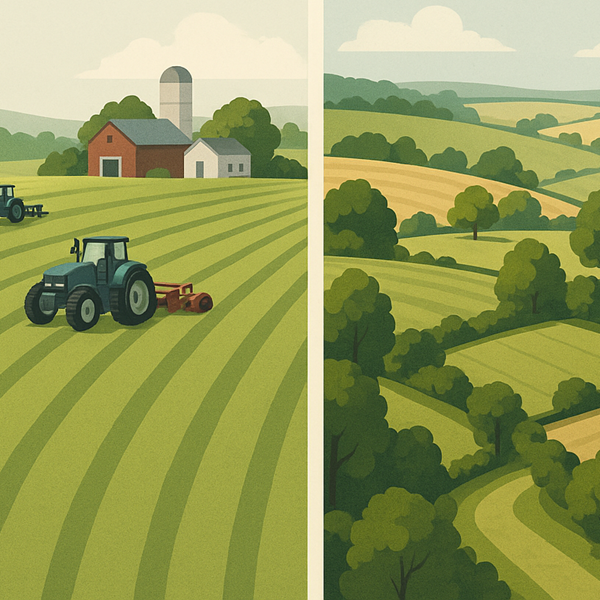
24.11.2025 Is it possible to reconcile food production, climate action, and biodiversity conservation in European agriculture? Yes, according to our recent study published in Nature Communications".
Illustration: generated with ChatGPT.
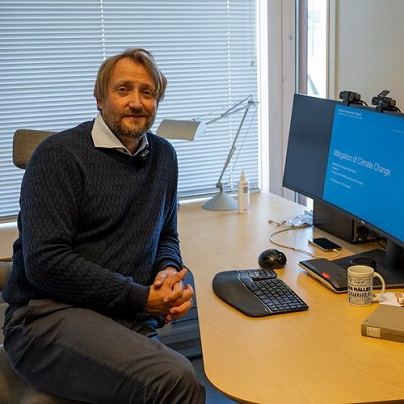
02.10.2025 Professor Anders Hammer Strømman from NTNU has been appointed Coordinating Lead Author for the IPCC’s Seventh Assessment Report, where he will lead the chapter on transport and mobility systems within Working Group III, focusing on climate change mitigation.
Photo: Martin Hansen/NTNU
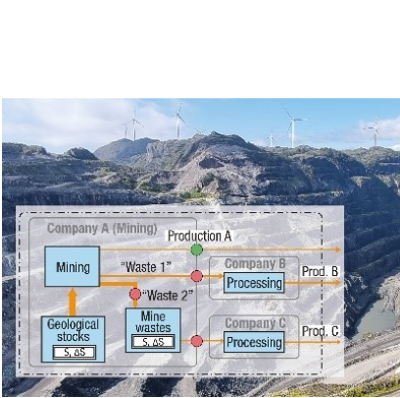
24.09.24 Monitoring material flows is crucial for sustainable resource management. In their study “Seven principles for monitoring the physical economy,” Mark Simoni, Jonna Ljunge, and Daniel Müller outline key strategies for data harmonization and integration.
Figure: Mark Simoni / NTNU
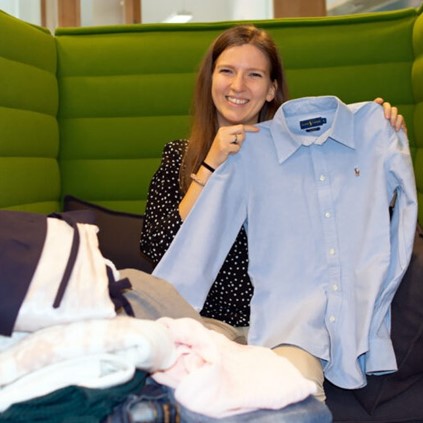
16.12.2023. Used clothes are good, but fewer are better. New study by Kamila Krych and Johan B. Pettersen about the clothing consumption of Norwegian households.
Photo: Maren Agdestein/NTNU
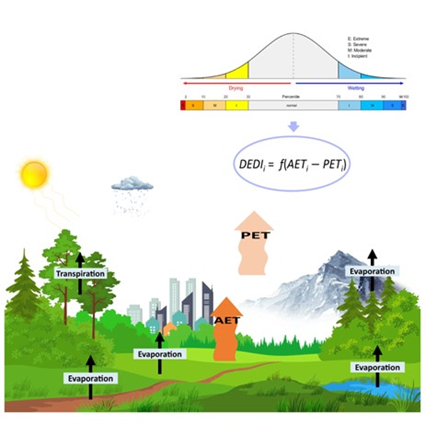
24.11.2023. DEDI dataset: a daily drought index covering global land areas from 1979 to 2022. It is validated globally, and it excels in short-duration drought monitoring, addressing critical knowledge gaps. New publication by Xia Zhang and Francesco Cherubini.
Figure: Xia Zhang/NTNU
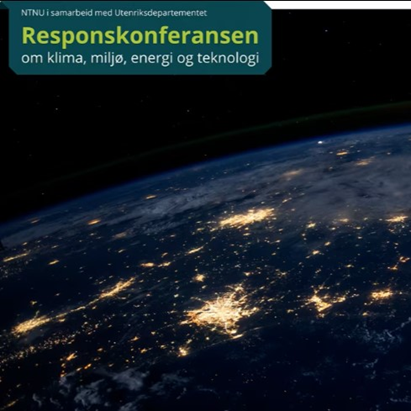
15.11.2023. Edgar Hertwich and Francesca Verones participated in Responskonferansen in the session ‘The global climate and environmental crisis: What are the drivers and what are the solutions?’
Photo: ntnu.no/respons
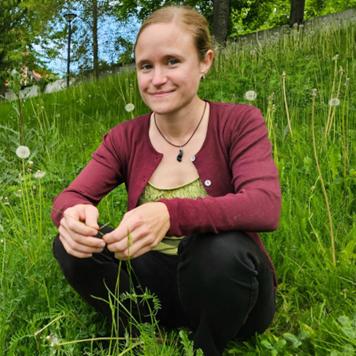
20.06.2023. Francesca Verones was selected as lead author for the upcoming IPBES report on Biodiversity and business. This report aims to provide an assessment of the impacts, as well as the dependence, that businesses and biodiversity have.
Photo: Maren Agdestein/NTNU
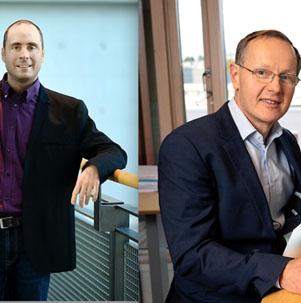
March 2022. IndEcol is proud to share the latest appointments of professors Francesco Cherubini and Edgar Hertwich to two new International panels positions. With their scientific expertise, they are going to contribute to climate related projects.
Photo: Titt Melhuus/NTNU
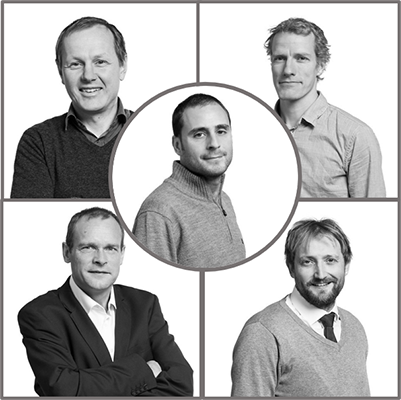
09.03.2021. Five professors from Industrial Ecology ranked among the top 2% Scientists in the world according to Sandford’s University list. This study measures the high-quality research performed in the field of Environmental Sciences of our group.
Photo: Geir Mogen/NTNU
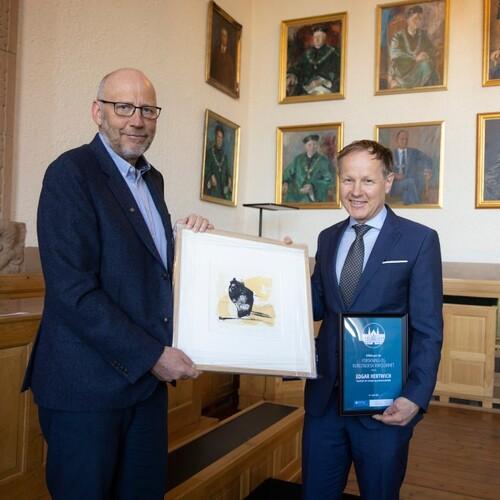
21.04.2023. Professor Edgar Hertwich was awarded NTNU 's Prize for research and artistic activity as a recognition for particularly outstanding results and his extensive contribution in the international arena for climate research.
Photo: Thor Nielsen/NTNU
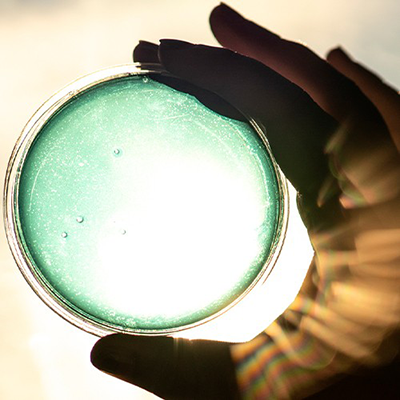
16.12.2020. Fireplug, CircWtE, SusWoodStoves - 3 new cutting-edge projects founded by the Norwegian Research Council involving the Industrial Ecology Programme.
Photo: Unsplash.com
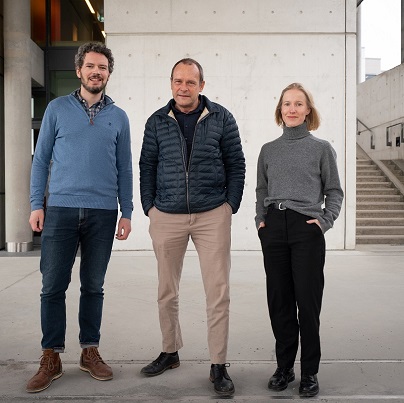
01.12.2024 The world's first MOOC on aluminium s a five-week course combines academic expertise with real-world insights, and available for free on FutureLearn.
Photo: Nils Dittrich
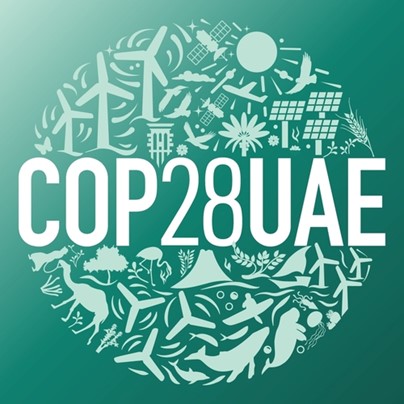
14.12.2023. Our researchers Edgar Hertwich, Anders Hammer Strømman and Helene Muri comment on the agreement from the UN climate negotiations, COP28.
Photo: COP28
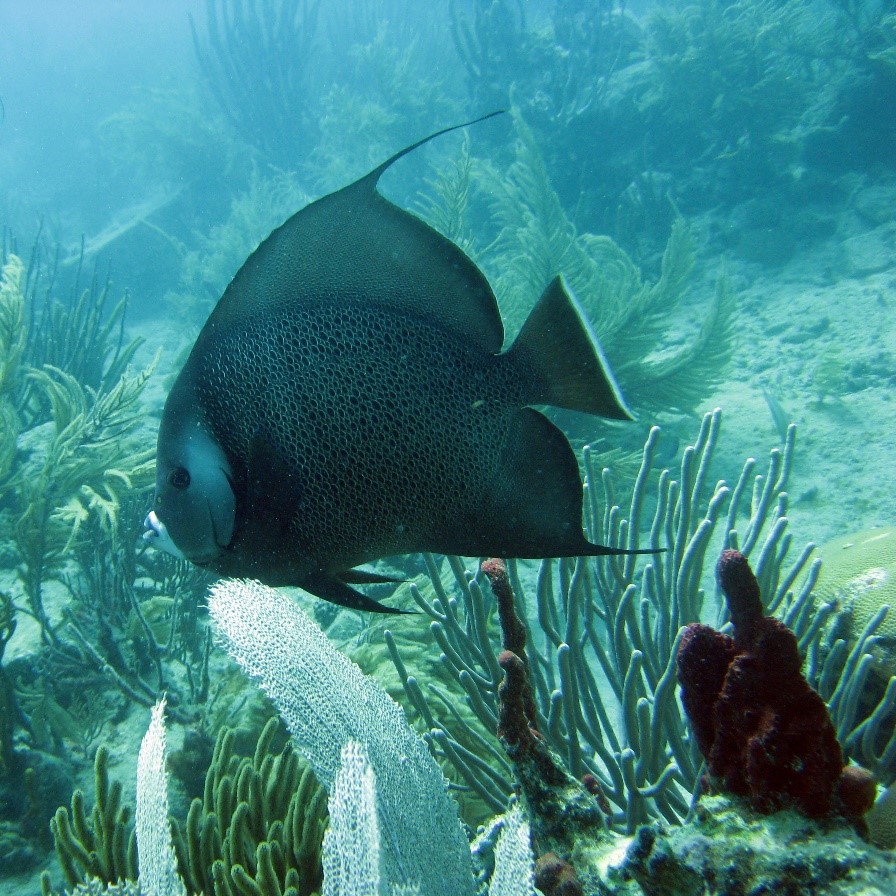
23.11.2023. Introducing MarINvaders, our interactive web toolkit! We've compiled a database of 112,399 marine species, uncovering 966 aliens and 1,655 listed as threatened by the International Union for Conservation of Nature
Figure: Unsplash
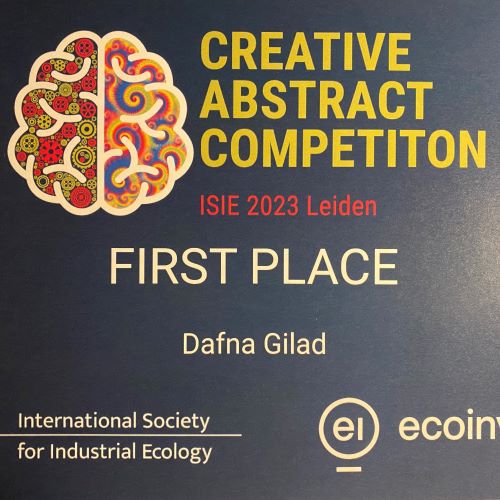
05.07.2023. Congratulations to Dafna for winning first place in the creative abstract competition at IS4IE for the video on the Sustainability game that is developed by Dafna Gilad, Sif de Visser, Philip Gjedde, Martin Dorber, Jan Borgelt and Francesca Verones!
Photo: Francesca Verones/NTNU
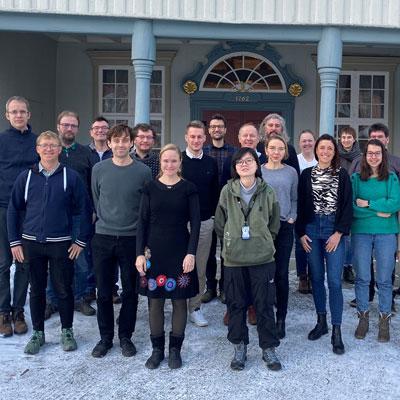
January 2023. The RAINFOREST project will contribute to enabling, upscaling and accelerating transformative change to reduce biodiversity impacts of major food and biomass value chains. Funded by Horizon Europe.
Photo from kick-off meeting in Lerkendal Gård, Trondheim.

October 2022. ALIGNED PROJECT will advance the scientific field of Life Cycle Assessment (LCA) and collaborate with industries and representatives from five bio-based sectors: construction, woodworking, textile, pulp and paper, and bio-chemicals.
Photo: Aligned project website
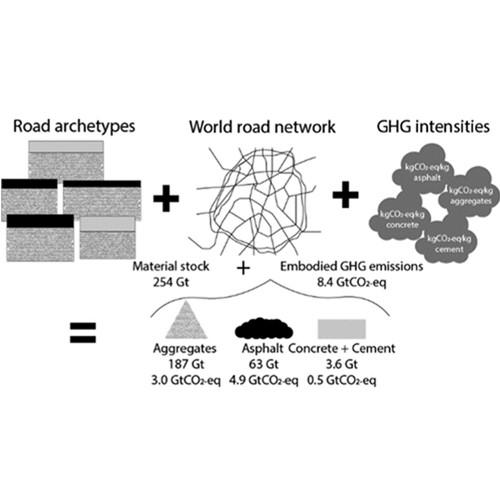
1.12.2022. Paved roads provide a lot of services such as enabling us to travel and move goods. This study, published in Environmental Science & Tenchnology, assesses the global road material stock and the emissions associated with materials’ production.
Figure: Lola S. A. Rousseau
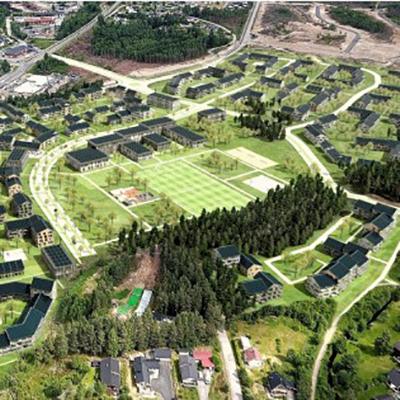
February 2021. LCA and scenario analysis of a Norwegian net-zero GHG emission neighbourhood: The importance of mobility and surplus energy from PV technologies. C.Lausselet, K.M.Lund and H.Brattebø. Published at Building and Environment
Photo: Asplan Viak and Elverum vekst.
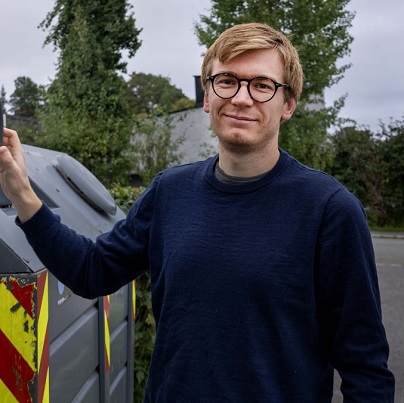
10.10.2024 Norway’s waste policy falls short of its goals because of inaccurate measurement methods, unreliable data and a lack of transparency about where Norwegian waste ends up, IndEcol researchers say.
Photo: Sølvi W. Normannsen
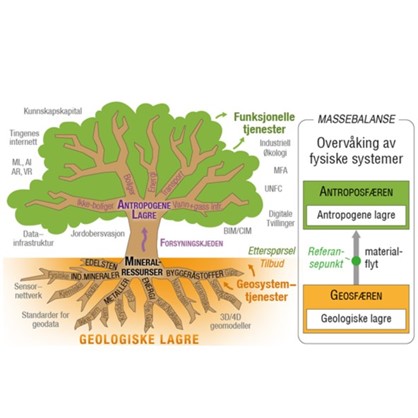
02.01.2024. New publication which addresses a fundamental challenge related to geological stock accounting. Solving this problem is essential for creating transparency in global raw material use and associated environmental and social conflicts.
Figure: Mark U. Simoni/NTNU
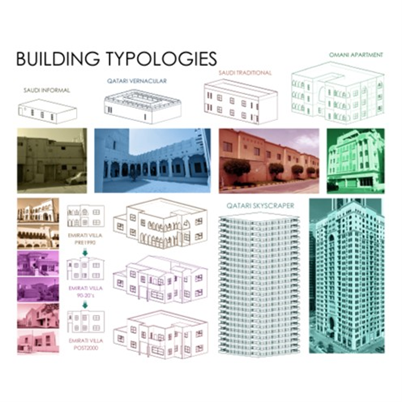
07.12.2023. Archetype-based energy and material use estimation for the residential buildings in Arab Gulf countries. This paper explores the characteristics of residential buildings in the GCC region and their effects on energy and material use.
Figure: Sahin Akin/NTNU
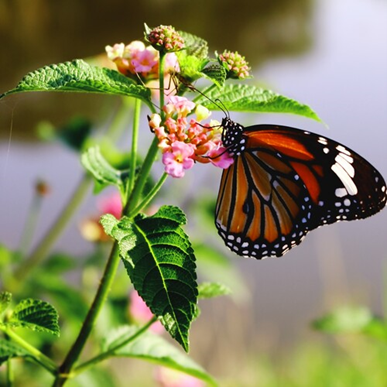
22.11.2023. Francesca Verones and Martin Dorber have written the ‘Biodiversity’ chapter, part of the book 'Engineering and Ecosystems'. Read more about the intersection of biodiversity, ecosystem services, and sustainable energy.
Photo: Unsplash
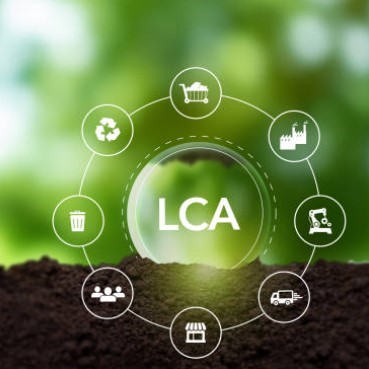
July 2023. In this Review article, we discuss the role of LCA in evaluating and shaping strategies on the decarbonization of energy systems, circular economy, sustainable consumption, and sustainable finance.
Photo: Unsplash
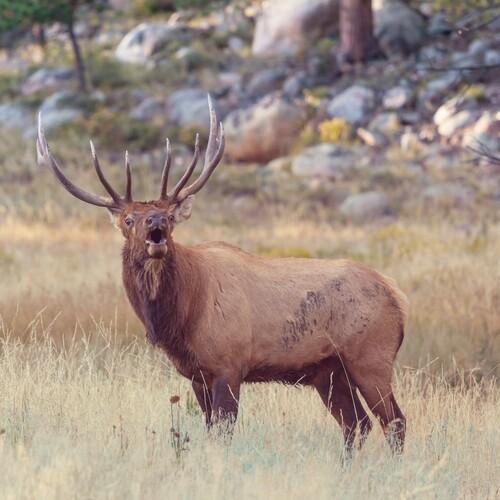
01.03.2023. Net Climate Effects of Moose Browsing in Early Successional Boreal Forests by Integrating Carbon and Albedo Dynamics. New publication co-authored by Xiangping Hu, Cristina Maria Iordan and Francesco Cherubini.
Photo: Colourbox
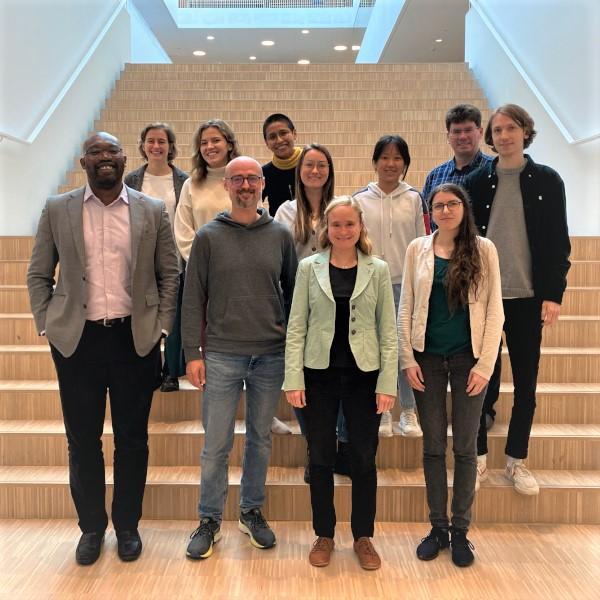
October 2022. BAMBOO PROJECT will provide comprehensive and detailed knowledge of the effects of biomass trade from land and sea on biodiversity and ecosystem services and an improved way of identifying leverage points.
Photo from kick-off meeting in Leiden (The Netherlands) on bamboo website.
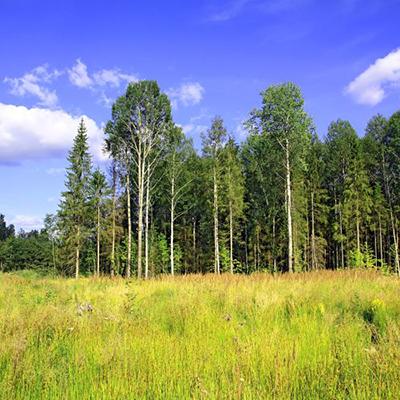
18.02.2021. New publication at Nature Sustainability: The land–energy–water nexus of global bioenergy potentials from abandoned cropland. Authors: Jan Sandstad Næss, Otavio Cavalett & Francesco Cherubini.
Photo: Colourbox
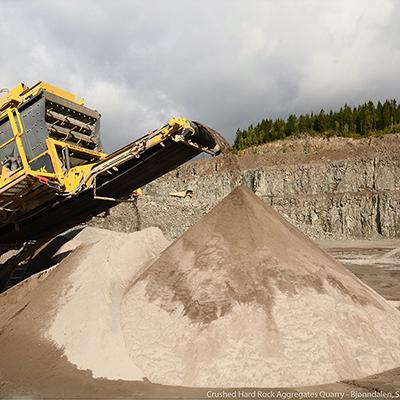
21.05.2021. Is crushed Norwegian rock the solution to the global sand crisis? A new publication Sustainability of the global sand system in the urban era co-authored by Mark Simoni and Daniel Müller in One Earth.
Photo: Mark Simoni/NTNU

08.04.24. New publication in Nature Sustainability: "Paving the way for sustainable decarbonization of the European #cement industry". 15 decarbonization options are assessed across a range of sustainability indicators.
Photo: colourbox.dk
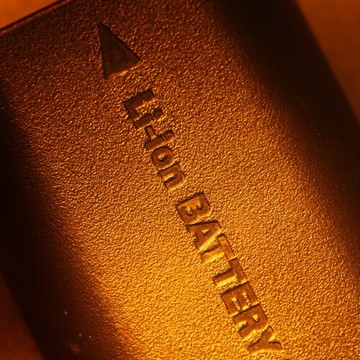
15.01.2024. LiB costs could be reduced by around 50 % by 2030 despite recent metal price spikes.
Cost-parity between EVs and internal combustion engines may be achieved in the second half of this decade.
Improvements in scrap rates could lead to significant cost reductions by 2030.
Photo: Colourbox
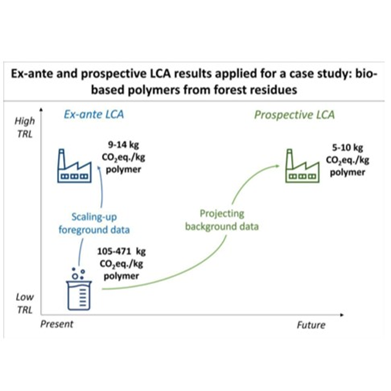
25.11.2023. Bio-based products are one of possible alternatives to defossilize the economy. New publication: "Integrating ex-ante and prospective life-cycle assessment for advancing the environmental impact analysis of emerging bio-based technologies"
Figure : Nariê Rinke Dias de Souza/ NTNU
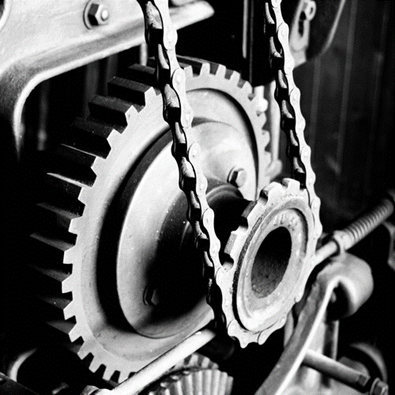
21.11.2023. From 2000 to 2019, the metal footprint of machinery capital stock expanded twice as fast as economic growth. Our article, "Material and Carbon Footprints of Machinery Capital", delves into the overlooked impact of machinery in industrial ecosystems.
Photo: Unsplash
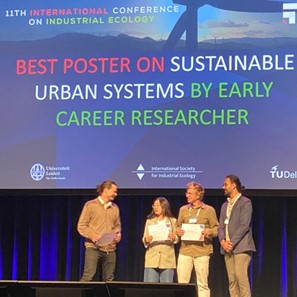
05.07.2023. A successful IS4IE conference in Leiden, Netherlands, ended with Nils Dittrich and Jiajia Li being receiving awards for best posters on sustainable urban systems. In addition, Elisa Pastor Valles was runner-up for the Best overall Poster Award.
Photo: Francesca Verones/NTNU
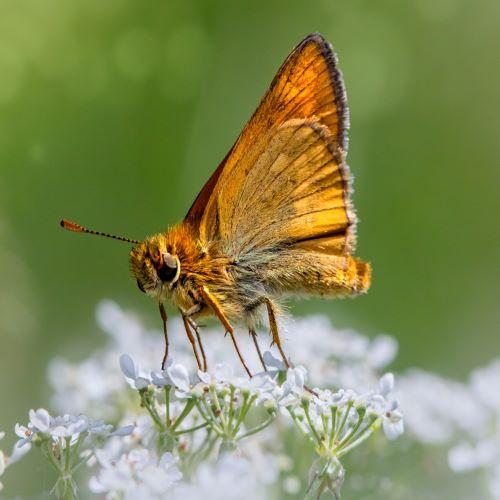
04.08.2022. More than half of data deficient species to be threatened by extinction. New publication in Communications biology by Jan Borgelt, Martin Dorber, Marthe Alnes Høiberg & Francesca Verones.
Photo: Unsplash
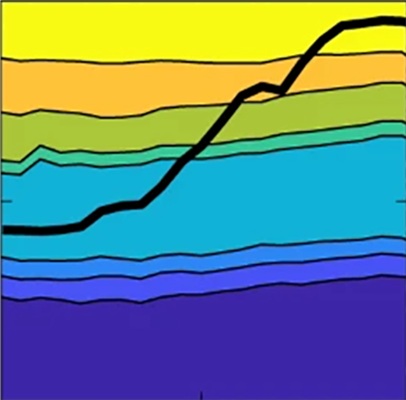
15.02.2021. The carbon footprint of materials production has risen from 5 billion tons CO2e in 1995 to 11.5 billion tons in 2015, driven mostly by investment, according to a paper in Nature Geoscience by Edgar G. Hertwich.
Fig. 1: GHG emissions from material production
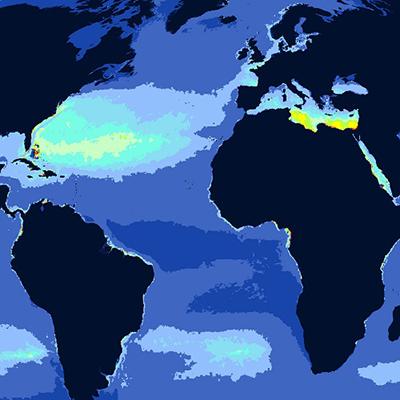
April 2020. ATLANTIS PROJECT will develop models for quantifying impacts on species diversity and ecosystem service losses from marine plastic debris and marine invasive species within the life cycle assessment framework. Funded by ERC, Horizon 2020.
Photo: Marthe A. Høiberg/NTNU
Other news
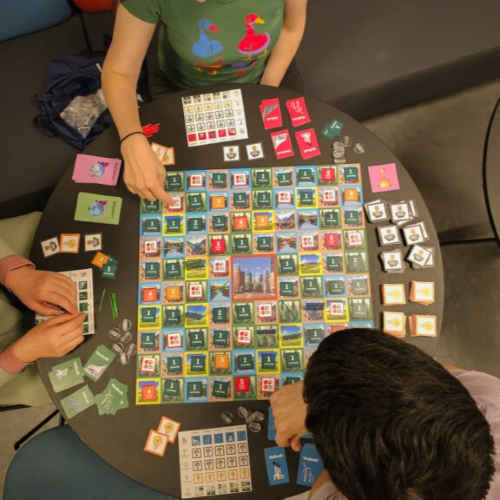
Drawing the line: the perils of power lines on bird richness. What are the Norwegian energy system’s impacts on our local biodiversity? Our research project aims to find out, and to present our research, we created a board game. Photo: Maren Agdestein/NTNU (27.09.2023)
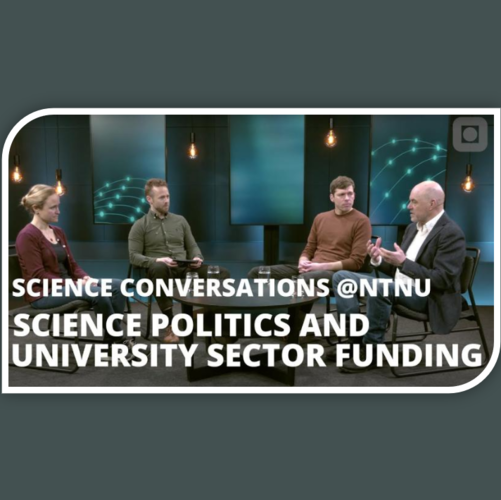
“Science politics and university sector funding”: This webinar took a look at the journey from being an early-career researcher with a new PhD to becoming an established academic with prestigious ERC funding and large research centres. Photo: NTNU Arrangement (04.05.2023)
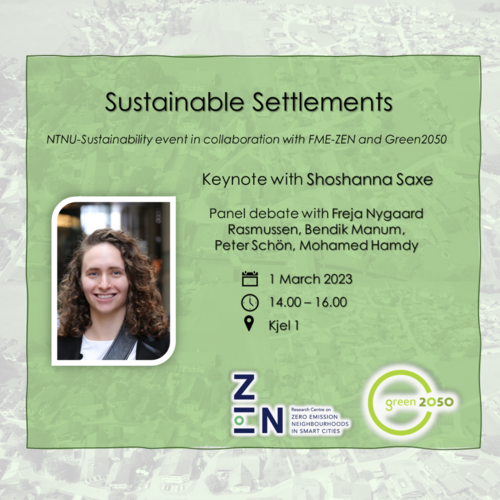
Sustainable Settlements: An NTNU-Sustainability event in collaboration with FME-ZEN and Green2050. Keynote with Shoshanna Saxe, Panel debate with Freja Nygaard Rasmussen, Bendik Manum, Peter Schön, Mohamed Hamdy. Photo: Triantafyllia Pappa/NTNU (01.03.2023)

Abandoned cropland helps make Europe cooler. Abandoned cropland — or land cover change more generally — and its role in regional climate can help to us adapt and mitigate the effects of climate change. And by improving agricultural systems, we can free up land for multiple uses.
(26.02.2020)

EXIOBASE update: v3.8.We just released a new update for the EXIOBASE 3 MRIO time-series of monetary tables: v3.8. It is a full re-estimate of the time-series, but still relies heavily on "now-casting" economic structure (and environmental extensions).
(22.11.2020)
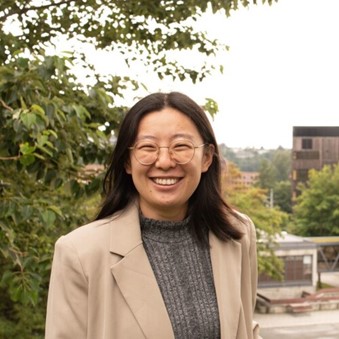
People's demands for buildings are changing with demographic changes. It's vital to identify which types of buildings are decreasing in demand and which are seeing an increase, says PhD candidate Jiajia Li. Photo: Maren Agdestein/NTNU (30.08.2023)
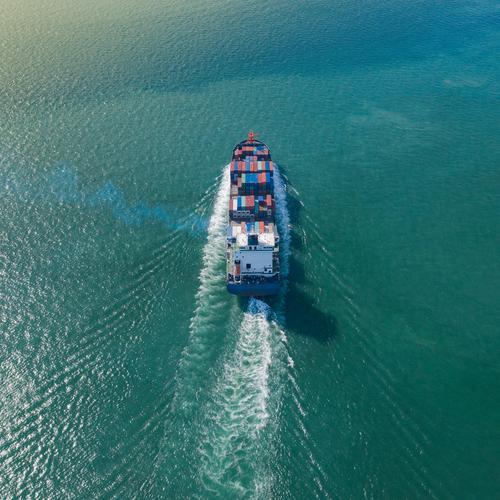
The MariTeam model is a tool that combines data from various sources to calculate, track and report emissions from ships across the world fleet. Anders H. Strømman and Helene Muri presented the tool at Ocean Week in Trondheim. Photo: Colourbox (03.05.2023)
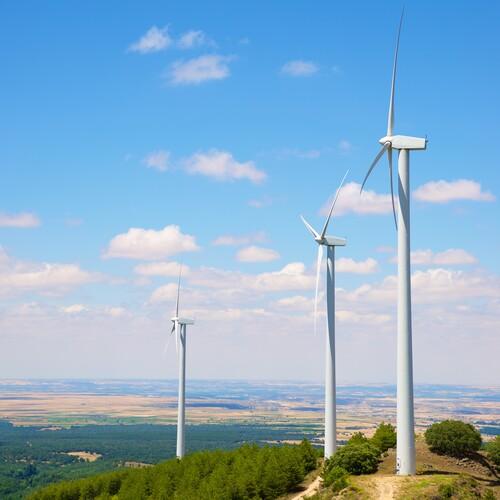
Addressing the energy crisis while delivering on EU’s climate objectives. This is the latest report by the EU's climate advisory board.
Prof. Edgar Hertwich has been selected to be member of the European Scientific Advisory Board on Climate Change. Photo: Colourbox (07.02.2023)
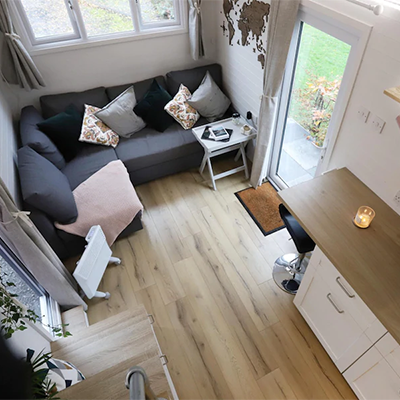
Tiny homes to fix the climate? New blog post by Prof. Edgar Hertwich (12.12.2020)
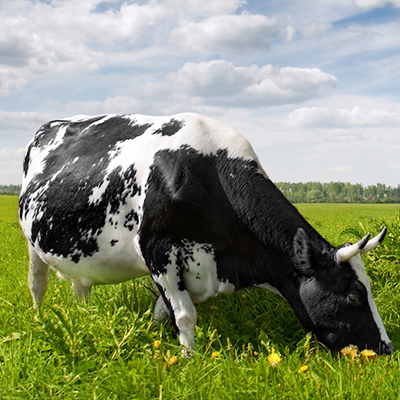
Fewer cows, more trees and bioenergy. Francesco Cherubini serves as lead author of Chapter 6 for the IPCC Special Report on Climate Change and Land.
(08.08.2019)
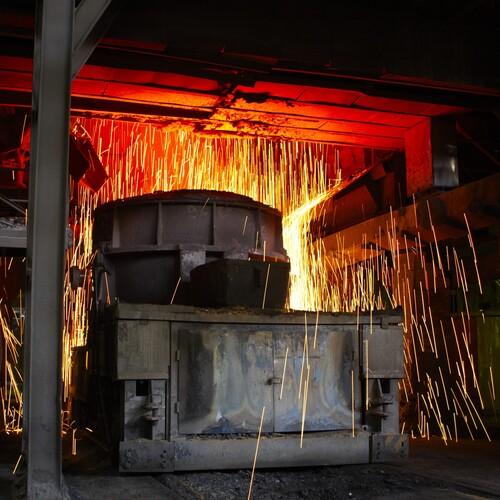
Using the hypothetical extraction method to understand the role of materials and manufacturing.
This webinar seeks to clarify the relationship of the hypothetical extraction method, linkage analysis, and the supply chain impact approach. Photo: Colourbox. (05.06.2023)
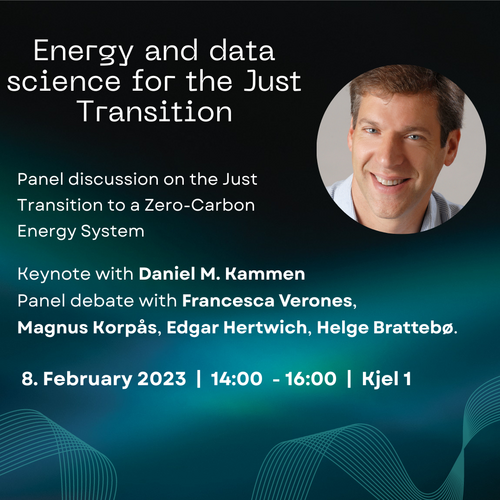
Energy & Data Science for the Just Transition with keynote speaker Daniel M. Kammen.
Panel discussion on the Just Transition to a Zero-Carbon Energy System with Francesca Verones, Magnus Korpås, Edgar Hertwich, Helge Brattebø. Photo: Triantafyllia Pappa/NTNU (08.02.2023)

The Industrial Ecology Digital Lab provides sustainable digital solutions for sustainability research. (01.01.2021)
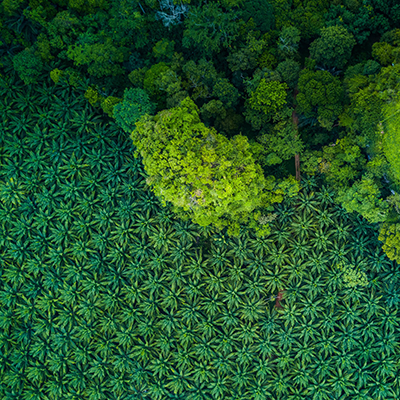
Losing ground in biodiversity hotspots worldwide: Agriculture is eating into areas that are important in protecting some of the most biologically diverse places on the planet. Most of this new agricultural land is being used to grow cattle feed. (29.10.2020)
IndEcol articles featured in Nature:
- Predominant regional biophysical cooling from recent land cover changes in Europe
- Systems approach to quantify the global omega-3 fatty acid cycle
- Coal-to-gas shift across across temporal and spatial scales
- Trade and the role of non-food commodities for global eutrophication
- Nanotechnology for environmentally sustainable electromobility
- Industrial ecology in integrated assessment models
- Identifying species threat hotspots form global supply chains
Norwegian SciTech News:
- European union’s ambitious climate goals are achievable – here’s how
- Second hand clothes are good, but fewer are better (in Norwegian)
- The energy footprint of architecture built by oil
- Moose can play a big role in global warming
- Half of the species we know little about may be threatened with extinction (in Norwegian)
- Two Industrial Ecology professors named to international climate-related posts
- Abandoned cropland helps make Europe cooler
- More people and fewer wild fish lead to an omega-3 supply gap
IPCC contributions:
- Francesco Cherubini serves as lead author of Chapter 6 for the IPCC Special Report on Climate Change and Land
- Professor Anders Hammer Strømman - Selected Lead author of Chapter 10 of the 6th IPCC Asessment Report
- Professor Francesco Cherubini has contributed to WGIII Chapter 7 (Energy systems) and 11 (AFOLU) of the 5th IPCC assessment report.
- Researcher Helene Muri presented findings from the IPCC Special Report on 1.5 degrees global warming at the Norwegian Environment Agency in Oslo.
